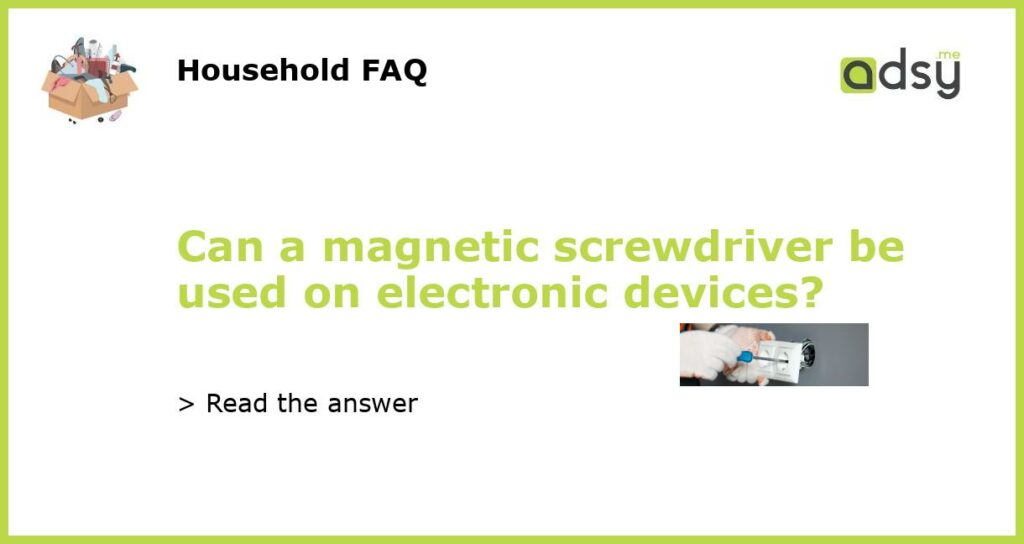Yes, a magnetic screwdriver can be used on electronic devices
Magnetic screwdrivers are commonly used in a variety of industries, including electronics, because they have several advantages over non-magnetic screwdrivers. In the context of electronic devices, a magnetic screwdriver can be a valuable tool when used properly. However, there are a few important factors to consider when using a magnetic screwdriver on electronic devices to avoid any potential problems or damage.
Understanding how magnetism works
Before diving into the use of magnetic screwdrivers on electronic devices, it’s important to understand how magnetism works. A magnet attracts or repels other magnets, as well as objects made of magnetic materials like iron or steel. Most electronic devices, such as smartphones, laptops, and circuit boards, contain electronic components that are not affected by magnetic fields. However, certain sensitive components, such as hard drives and credit card strips, can be damaged by strong magnetic fields. It’s crucial to be aware of this when using a magnetic screwdriver on electronic devices.
The advantages of using a magnetic screwdriver
Despite the potential risks, there are several advantages to using a magnetic screwdriver on electronic devices. Firstly, a magnetic screwdriver can help prevent accidentally dropping and losing small screws while working on an electronic device. The magnetism holds the screw in place, making it easier to accurately position it in the screw hole. This can save time and frustration when working on intricate and delicate electronic devices.
Secondly, a magnetic screwdriver can simplify the process of removing and replacing screws in tight spaces, especially when working with small or hard-to-reach areas. The magnetism ensures that the screw remains attached to the screwdriver, even if the user’s hand is not in direct view of the screw or the screw hole. This can be particularly useful when working on electronic devices with limited access, such as inside a computer case.
Precautions when using a magnetic screwdriver on electronic devices
While a magnetic screwdriver can be a useful tool for working on electronic devices, it’s essential to take certain precautions to avoid any potential problems:
- Avoid using a strong magnetic screwdriver near sensitive components like hard drives or credit card strips. These components can be damaged by strong magnetic fields.
- If you’re unsure about the sensitivity of a particular component, consult the manufacturer’s guidelines or seek professional advice before using a magnetic screwdriver.
- Avoid letting the magnetic screwdriver come into direct contact with any electronic circuitry or delicate components.
- When using a magnetic screwdriver, be mindful of any debris, such as metal filings or shavings, that may be attracted to the magnet. These could cause short circuits or other damage if they come into contact with sensitive areas of the electronic device.
- Lastly, if using a magnetic screwdriver for precision work on electronic devices, consider using a screwdriver with a weak magnet. This will provide the desired benefits without the risk of damage to sensitive components.
In conclusion, a magnetic screwdriver can be used on electronic devices with caution and proper understanding of its potential risks. The advantages of using a magnetic screwdriver, such as preventing lost screws and simplifying work in tight spaces, can be beneficial when working on electronic devices. However, it’s essential to be mindful of the sensitivity of certain components and take necessary precautions to avoid any damage. If unsure, consult manufacturer guidelines or seek professional advice to ensure the safe use of a magnetic screwdriver on electronic devices.






